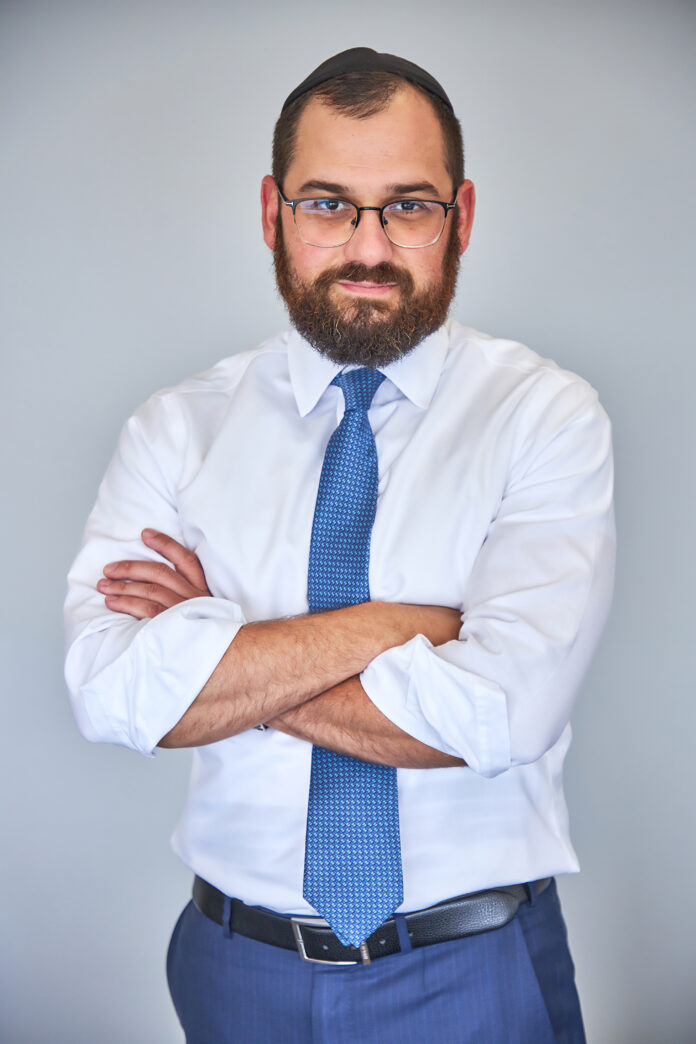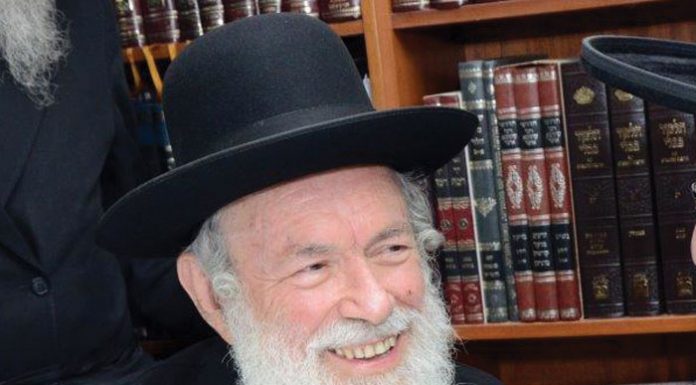Here are two interesting statistics about lawyers: Less than one percent of lawyers go on to open their own firms, and of those who do, less than one percent go on to have more than 100 employees. Enter Alex (Alexander) Shulman, founder of Shulman and Hill, personal injury lawyers.
Alex is not your typical lawyer. He is an entrepreneur who happens to be a lawyer. Together with his partner JJ Hill, Alex grew a fledgling law firm into one of the top personal injury law firms in New York.
Over the past six years, he has stepped away from practicing law and focused solely on building the business, taking a unique approach in creating the most technologically advanced law firm possible.
Along with the story of his business career, Alex shared his journey to Yiddishkeit when he was inspired by his rebbi.
While we did speak about how business owners can protect themselves from issues with injuries at work, Alex’s advice was wide-ranging and broadly applicable. Whether it is his unique approach to law—one of building relationships as a strategy—or his willingness to help anyone who asks for advice, you will be entertained and inspired. Alex told me several times throughout our two-plus-hour talk that his goal is to shine a little light in the world. How appropriate.
A freilichen Chanukah
Enjoy!
—Nesanel
I was born in the former Soviet Union, in Poltava, Ukraine. Before the Revolution, 40 percent of the city’s population was Jewish. My family grew up on Shalom Aleichem Street in the center of town.
“My father, Igor, was an engineer. He worked on construction projects. My maternal grandmother worked in the black market, buying and selling products from Moscow down to Ukraine, and as a result my family was well off. It was a crazy world. Once, my grandparents put new tiles in their bathroom. The KGB showed up a few days later and asked where they had gotten them. One of their neighbors had seen the new tiles and informed the KGB about them.
“When the Iron Curtain fell in 1989, the Jewish Agency took out everyone who wanted to leave the Soviet Union, to bring them to Eretz Yisrael. On our way there, we stopped in Vienna, where we heard that it was hard to live in Israel and easier to make a parnasah in America. My family decided that we would move to America.
“Meanwhile, we were, as they say, stateless refugees. We waited in Italy for a couple of months until a family friend sponsored us to come to Detroit.
“I was seven years old when we came to America. We’re a small family; I have only one sister. My parents came here with only $1,200 to their name. They couldn’t take any money out of the Soviet Union. They were allowed to take two pieces of jewelry valued at 200 rubles or less, but you had to renounce your Soviet citizenship and they took all of your money. The border guards gave us a whole drashah on our way out of Ukraine that we were betraying the motherland, but you could see on their faces that they didn’t believe a word they were saying.
“With some of that money, my parents bought a vacuum cleaner and a very old car. That was all they could afford. My father started working for $5 an hour at a moving company. Then he got a job with a painting company, painting houses. It turned out he was good at it, so after some time as a painter of residential houses, he opened his own painting business and was very matzliach doing high-end residential home painting.
“I come from a family of hard workers. My grandfather came over with us and got a job assembling cars. He stayed with it into his mid-70s, when they kicked him out and gave him a pension so he would stop working.
“We became Americanized very quickly. The Midwest is not like New York. In the Midwest, people have American flags on their houses and cars, and they go to serve in the army. When we first got there, we lived in Oak Park—which is the main frum community—with all the other Jewish immigrants. When we’d saved a couple of dollars, we moved to West Bloomfield.
“I didn’t grow up frum, but I did have a connection to Judaism. We always knew we were Yidden. I had a bar mitzvah with the help of a Chabad shliach, Rabbi Yosef Mishulovin of FREE Michigan, who was sent to Detroit by the Lubavitcher Rebbe to work with Russian Jews. He taught me the alef-beis, and I was able to recite the blessings on the Torah.
“We were wild kids, hanging out in the streets. Our parents were just trying to survive. They worked very hard and didn’t have much time for us, so we did whatever we wanted. A Lubavitcher, Rabbi Hershel Zaklos, used to come to my public school as part of the Release Time program and teach us about Judaism. I distinctly remember spending Shabbos at the Zaklos home when I was in fifth grade, and he taught me Krias Shema. From then on, I said Krias Shema every night.
“I went to public elementary, middle, and high school and played sports throughout. Then I attended Michigan State University. I was the president of my fraternity house. (When they asked me to speak at an Ohr Somayach dinner, they titled my speech “From Fraternity to Eternity.”)
“I never grew up loving money, wanting money, or caring about money. But I am like every Yid: I wanted to change the world. I think that’s why Hashem blessed me with success in business—because He wants people who have an open hand to lift up others and don’t think of themselves first. I was in a small honors program, James Madison College, at Michigan State, where I majored in international relations because I was very idealistic and politically involved. I was planning to go into political lobbying in Washington, DC. I spent two summers on Capitol Hill, one attending Georgetown University and interning at the US Department of Commerce in a division that fostered trade between the former Soviet states and America, and another at George Washington University while interning for the Anti-Defamation League.
To read more, subscribe to Ami





















